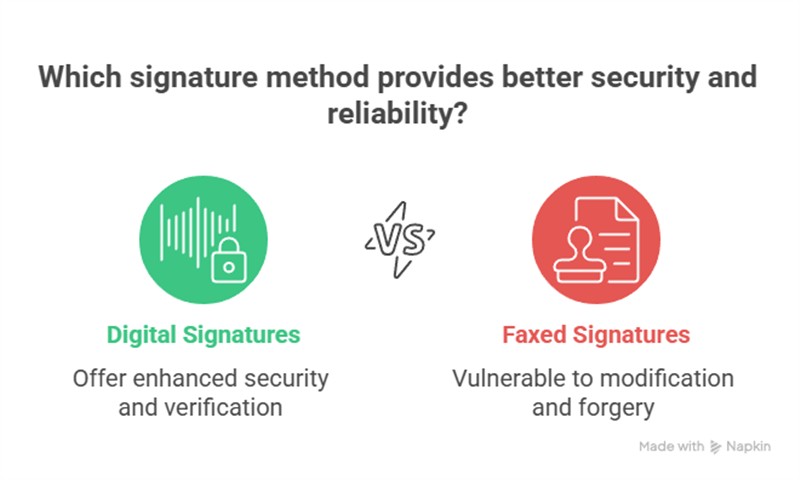Digital Signatures

Digital signatures use computer encryption to verify a signer's identity and confirm their agreement. Generally, under Australian law, they are treated as handwritten signatures. What they do is use codes to make a seal that joins the signers to the document. If the document is changed in any way, everyone gets a message that the signature is now invalid. They are preferred over faxed signatures, as a fax signature can be modified and forged.
- Legal Validity in Australia
- Step-by-Step Guide for Retail Use
- Key Benefits and Common Concerns
- FAQ: Your Questions on Digital Signatures Answered
- Important Disclaimer
Legal Validity in Australia
Signed digital signatures are binding for most business deals. Of course, like any signature, you need identification, proof of intent to approve, and the agreement of all parties.
Most exceptions in my experience where digital signatures are not accepted occur when you need to do it in front of a lawyer, a court, and/or witnesses.
Step-by-Step Guide for Retail Use
- Log in to your digital signature account.
- Upload the document, like an invoice.
- The software will send the link to the other party.
- I suggest adding the ID checks, such as licence uploads.
- Let the recipient sign with a click.
- After you sign, the system locks the document and creates a certificate.
- You now have independent proof.
It saves a lot of time.
Key Benefits and Common Concerns
Digital signatures eliminate the need for printing and waiting for a fax.
FAQ: Your Questions on Digital Signatures Answered
Q: Are digital signatures legal in Australia?
A: Digital signatures have proven legally binding for most business transactions in Australia.
Q: What is the difference between a faxed signature and a digital signature?
A: A faxed signature appears as an image of your mark. Copying or forgery occurs easily. A digital signature uses advanced security. Software creates a tamper-proof lock that ties all parties and the document. Then you have a public record to track the signing process.
Q: I received an email with a document to sign. How do I know it is secure?
A: Contact the sender to confirm details if doubts exist.
Q: Are there any documents I cannot sign digitally?
A: Most documents signed with faxed methods, like invoices or agreements, can switch to digital. Exceptions generally occur when lawyers, courts, and/or witnesses are required.
Q: What are the main benefits of using digital signatures?
A: Digital signatures prove easier and quicker than faxing. No printing, scanning, or waiting occurs. Better security.
Q: Someone signed a digital document, but a dispute arose. How does the signature prove it was them?
A: This is why you need support with ID verification, like an emailed driver's licence. This is similar to any signature.
Q: Do I need to be a tech expert to use digital signatures?
A: It takes a little getting used to, but it's made to be easy to use.
Q: What happens if a document changes after digital signing?
A: The signature is immediately declared as invalid. All sides get an alert.




